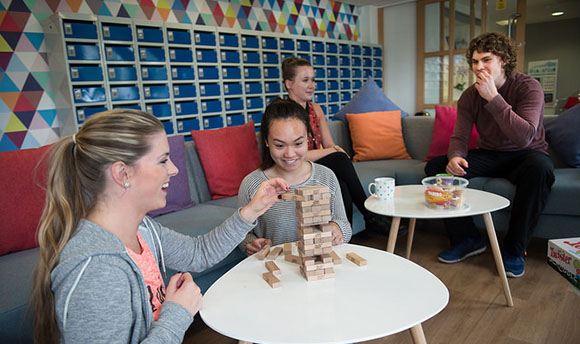This blog lays out an outdoor learning event QMU hosted on behalf of the Scottish Outdoor Learning Research Group. The event was hosted by Patrick Boxall, Lecturer in Initial Teacher Education in the Psychology, Sociology & Education Division of Queen Margaret University.
On the 26th April 2023, Queen Margaret University (QMU) hosted the Outdoor Learning and Play Research Picnic. A meeting of outdoor learning researchers and practitioners, the day offered an opportunity to reconnect after a pandemic-induced break.
Penny Martin from NatureScot kicked off the day, welcoming familiar and new faces. The
group had last met in 2018, very much pre-pandemic and a lot has changed since then. She
described the opportunities afforded by the changing policy landscape, recent Scottish
curriculum review and the Learning for Sustainability Action Plan update both have the
potential to impact outdoor provision for young people in Scotland. Penny also described
some recent research funded by NatureScot, which highlights the existing challenges in
achieving consistent outdoor provision. The priority for the day, however, was to connect,
reflect, and explore the outdoor spaces provided by QMU.
Following this, Patrick Boxall from QMU described the strategy behind the QMU Outdoor
Learning Hub, a series of purpose-built outdoor spaces surrounding the new campus
building, intended to provide opportunities for teaching, learning and communities to
connect with nature. The spaces include a wee forest, pond, allotment area, wildflower
meadow and a gathering place or ‘roundhouse’, all connected by accessible paths and
interspersed with areas to sit, pause, observe and reflect. A partnership with Architecture &
Design Scotland, NatureScot and others has made this ambitious outdoor project possible
and we had the opportunity to explore and respond to it throughout the day.
The two main sessions of the day were ‘Getting (re)Acquainted’ and a walking trail around
the QMU Outdoors. In ‘Getting (re)Acquainted’, Claire Ramjan facilitated introductions, a
sort-of ‘speed dating’ for outdoor researchers and practitioners, along with some reflections
on current engagement with research and future hopes. Key outcomes from these sessions
were that there is a need for researcher and practitioners to be much more closely
connected in order to support and strengthen each other’s practice. Difficulties in accessing
contemporary research were also highlighted, with time, cost and accessibility of language
all posing challenges. You can find some of the discussions that were recorded on this
Padlet.
In the walking trail, Patrick posed the provocation, ‘What are the gifts of place?’, asking
participants to explore, reflect and record their experiences in response to the QMU
Outdoors. The gifts of sensory experiences, wildlife diversity, dandelions, cowslips and
moorhens were all identified by those walking around the site. Questions were also posed
by the nature of the place, for example; how do we balance safety and adventure when
outdoors? Some wonderful images and further responses can be found in this Padlet.
Both Padlets will remain live and interactive, please continue to add any thoughts, ideas or
images to them.
Finally, Greg Mannion from the University of Stirling hosted an informal panel discussion to
round off our day. A huge thank you to Roger Scrutton, Loren Miller, Carolyn MacFarlane,
John Quay, Juliet Robertson and Mairi Ferris for agreeing to sit ‘up front’ and respond to the
questions arising from the day’s discussions. Firstly, the question of how to better connect
researchers and practitioners. Loren suggested that embedding researchers directly within
delivering organisations is a way to ensure that research that meets the needs of those on
the ground is undertaken, and that practitioners can more quickly access and respond to
research findings. Juliet passionately reminded us to celebrate successes, whether that is
early years practitioners taking children outdoors in all weathers, or peer conversations
promoting outdoor experiences in schools. By recognising and celebrating these small wins,
we fortify our commitment to a positive relationship with nature for our young people.
Finally, a reflection on the importance of professional learning opportunities and time to
implement outdoor approaches consistently in practice was made (by Heidi Smith,
University of Edinburgh), further emphasising the need for a strengthened relationship
going forward.
We would like to thank everyone that came along for participating so enthusiastically in the
day. Many great conversations were started, we hope to continue them into the future.







